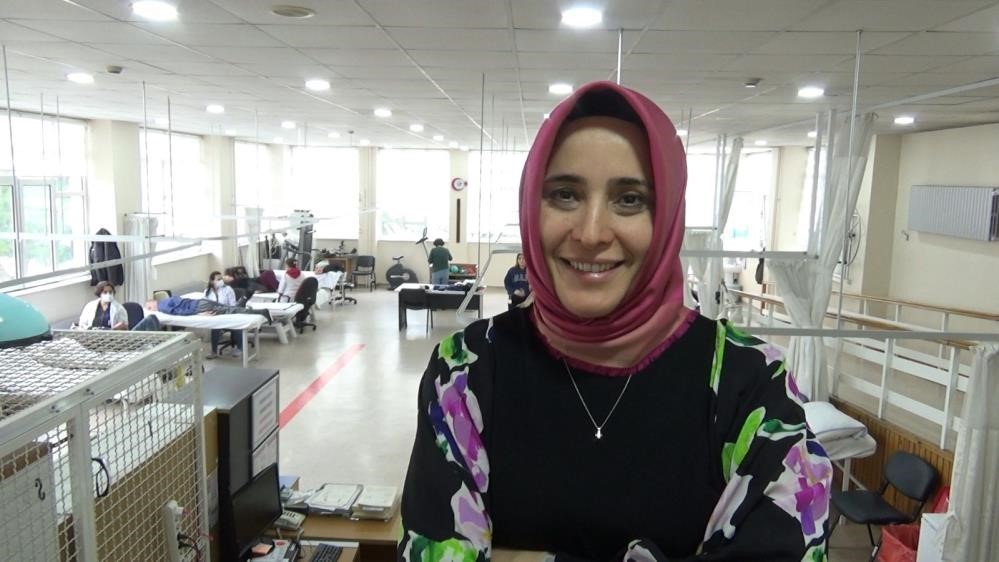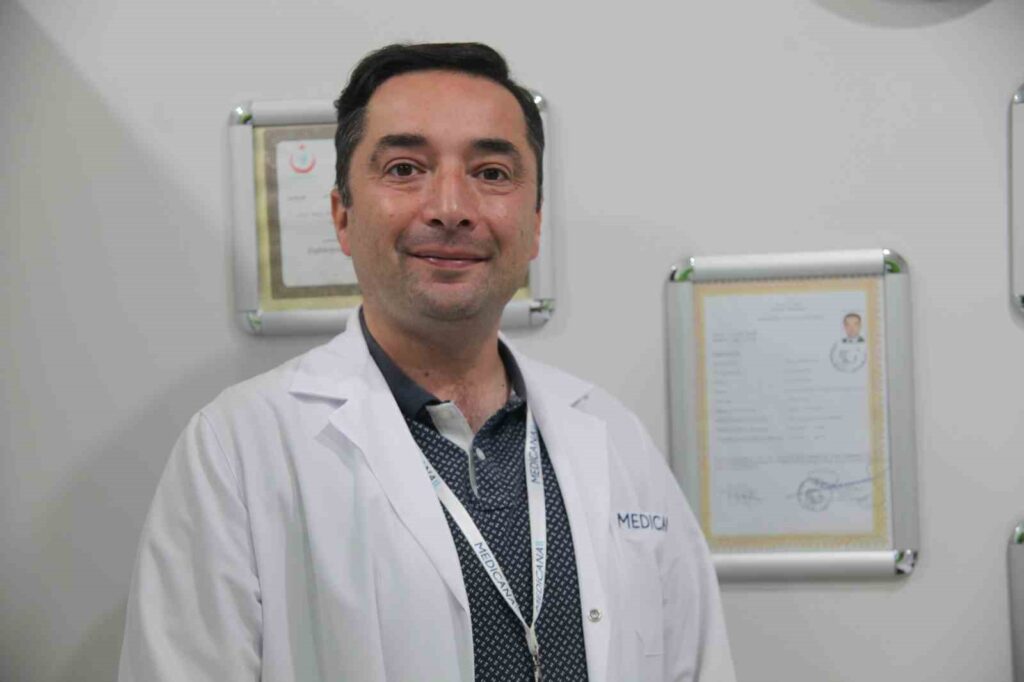Psychologist Çapar: “Do not avoid memories while grieving”.
Uzman Psychologist Tara Çapar, who emphasizes that everyone experiences the grieving process differently, stated that grief can lead to physical problems such as difficulty breathing, feeling of suffocation, loss of strength, loss of appetite, and fatigue. Psychologist Çapar pointed out that coping with the reality of death…

Psychologist Tara Çapar, emphasizing that each individual experiences the grieving process differently, stated that grief can lead to physical problems such as difficulty breathing, feeling of suffocation, loss of strength, loss of appetite, and easy fatigue. Psychologist Çapar recommended attending the funeral to face the reality of death, experience the pain, and bid farewell, while highlighting that avoiding places and people that remind of the lost person can hinder the grieving process. Acıbadem Adana Hospital Psychologist Tara Çapar provided important information about intense emotions and grief reactions that occur when a loved one is lost. Emphasizing that everyone grieves in their own unique way, Psychologist Çapar said, ‘Grief is an event encountered in life and is experienced subjectively depending on age, culture, gender, and previous grief experiences. People can grieve as deeply for the loss of a pet or the end of a relationship as they do for the death of their parents. These grief reactions given to grief are interpersonal differences.’ She stated that factors such as the relationship established with the lost person, religious and cultural beliefs about grief, past psychiatric history, personality traits, past losses, perception of death, and socioeconomic status affect grief reactions. ‘There are 3 types of grief: Normal, traumatic, and psychological’ Psychologist Çapar, who stated that grief is divided into normal, traumatic, and pathological grief, said, ‘Normal grief is the emotional, mental, physical, and behavioral reactions observed after a loss. Emotionally, individuals may experience shock, sadness, guilt, fear, helplessness, reluctance, and fatigue, etc. mood states. Grieving the loss of a loved one is a natural process that must be experienced. Generally, physical discomfort is observed in fluctuating forms. Physical symptoms such as difficulty breathing, feeling of suffocation, loss of strength, loss of appetite, easy fatigue, etc. are often seen. When mental processes after the loss of a loved one are examined, symptoms such as denial, disbelief, confusion in thought, erroneous/distorted thoughts, hallucinations, forgetfulness, attention deficit, disturbing dreams, etc. are observed. Physical symptoms such as a knot in the heart and throat, shortness of breath, dry mouth, sensitivity to sounds are observed. Behaviors such as alcohol or substance use, avoiding individuals who remind of the lost person, sleep and eating problems, obsessive behaviors, searching for the deceased person are observed.’ She said.
‘The first of the 5 stages is shock and denial’ Psychologist Çapar stated that the first stage of the grieving process is ‘shock and denial,’ explaining that the individual initially experiences numbness with the reality of death for a short time, usually denies and refuses the loss. Capar described the next stage as ‘anger,’ where the individual begins to question and consequently gets angry. In the ‘bargaining’ stage, expectations for the deceased person to return arise, feelings of anger and loneliness are felt, and individuals feeling guilty think about what they could do differently. The ‘depression-acceptance’ stage dominated by feelings of sadness and helplessness is followed by the ‘restructuring’ stage where the reality of the loss is accepted, and life is reorganized, she added.
‘Anger and rebellion can be observed in traumatic grief’ Describing traumatic grief as the problems that negatively affect a person’s life and functionality after the sudden or violent loss of a loved one, Psychologist Çapar said, ‘Even though six months have passed since the loss, we see that a significant part of the day is spent longing for the lost person and sometimes this feeling leads to loss of competence. We observe individuals rebelling and being angry with authority. Symptoms such as engaging in excessive activities to avoid thinking about the lost person, having difficulty trusting, distancing oneself from social environments, changing attachment styles, constant desire to cry can be seen. Unexpected loss, relationship with the deceased person, personality traits, manner of death, absence of a funeral ceremony, witnessing the death, and factors such as these affect the risk of experiencing traumatic grief,’ she said.
‘This process should be shared with family and friends’ Pointing out that it is a characteristic of pathological grief for a person’s functionality to deteriorate even after at least six months have passed since the loss, Psychologist Çapar stated that these individuals get stuck in one of the normal grieving stages, cannot complete the grieving process, do not recover, and exhibit pathological reactions.
To better cope with the grieving process, Çapar advised individuals to share their feelings with trusted individuals; pay attention to sleep and eating habits. She said, ‘Expressing your feelings, talking about the loss, touching objects that remind you of the loss, knowing that your reactions are normal and natural will help you. Attending the funeral allows you to face the reality of death, experience your pain and bid farewell. Avoiding places, people, and objects that remind you of your loss will hinder your grieving process.’
‘Psychological support is needed for depression lasting more than two months’ Psychologist Çapar recommended psychological support if the depression symptoms in the grieving process last more than two months or if pathological grief symptoms are observed, aiming to analyze conflicts related to post-death separation, increase functionality, develop coping methods, provide psychoeducation, and ensure adaptation to life again. She stated that after completing the grieving process, individuals can return to their normal and healthy lives, make grief a part of their lives, and learn to live with it. Emphasizing that children may perceive the concept of death differently according to their age, Psychologist Çapar said, ‘Even if they feel guilty during the grieving process, it should be stated that this death is not due to the child’s behavior. Behaviors such as bedwetting, thumb sucking, or anger and risky behaviors can also be observed.’







